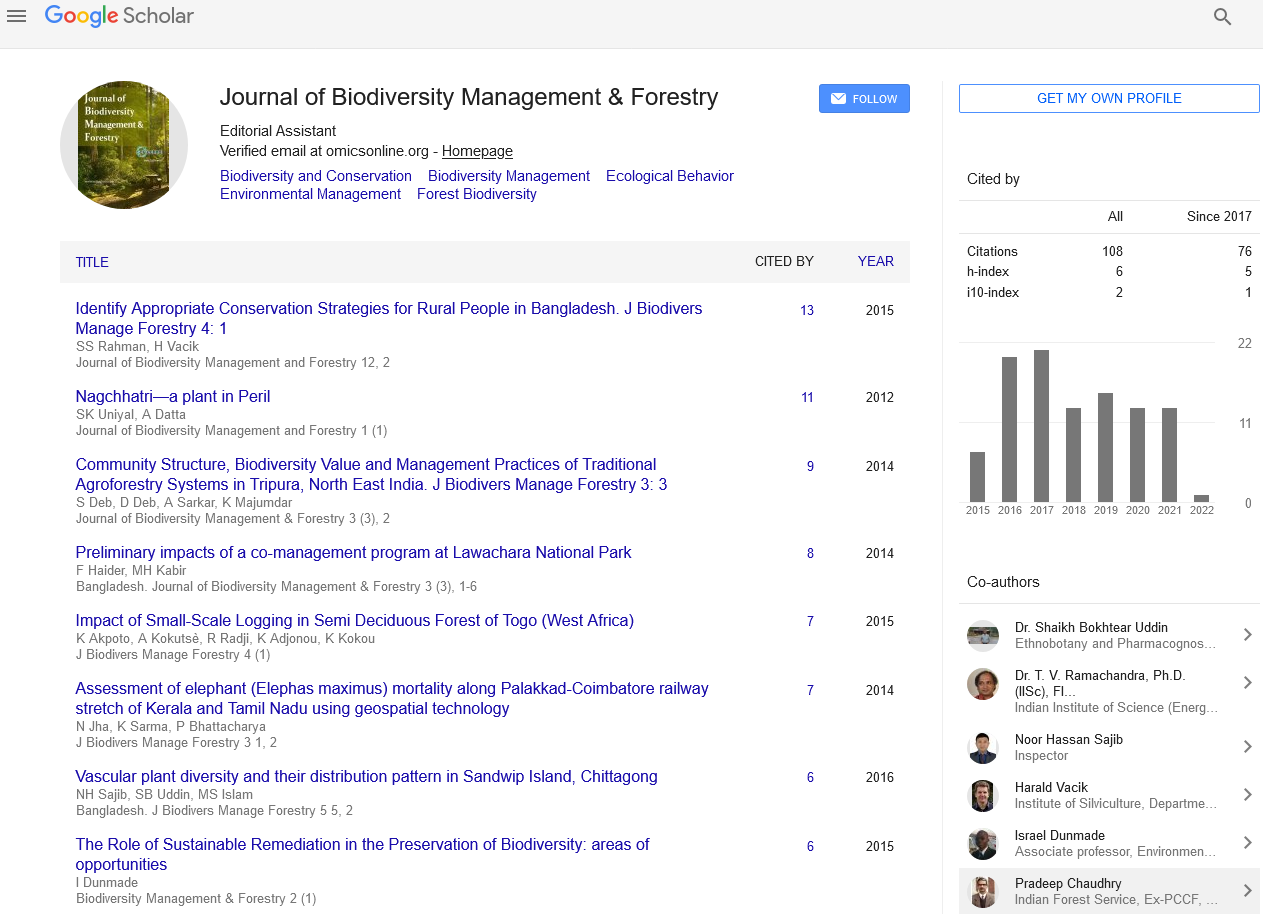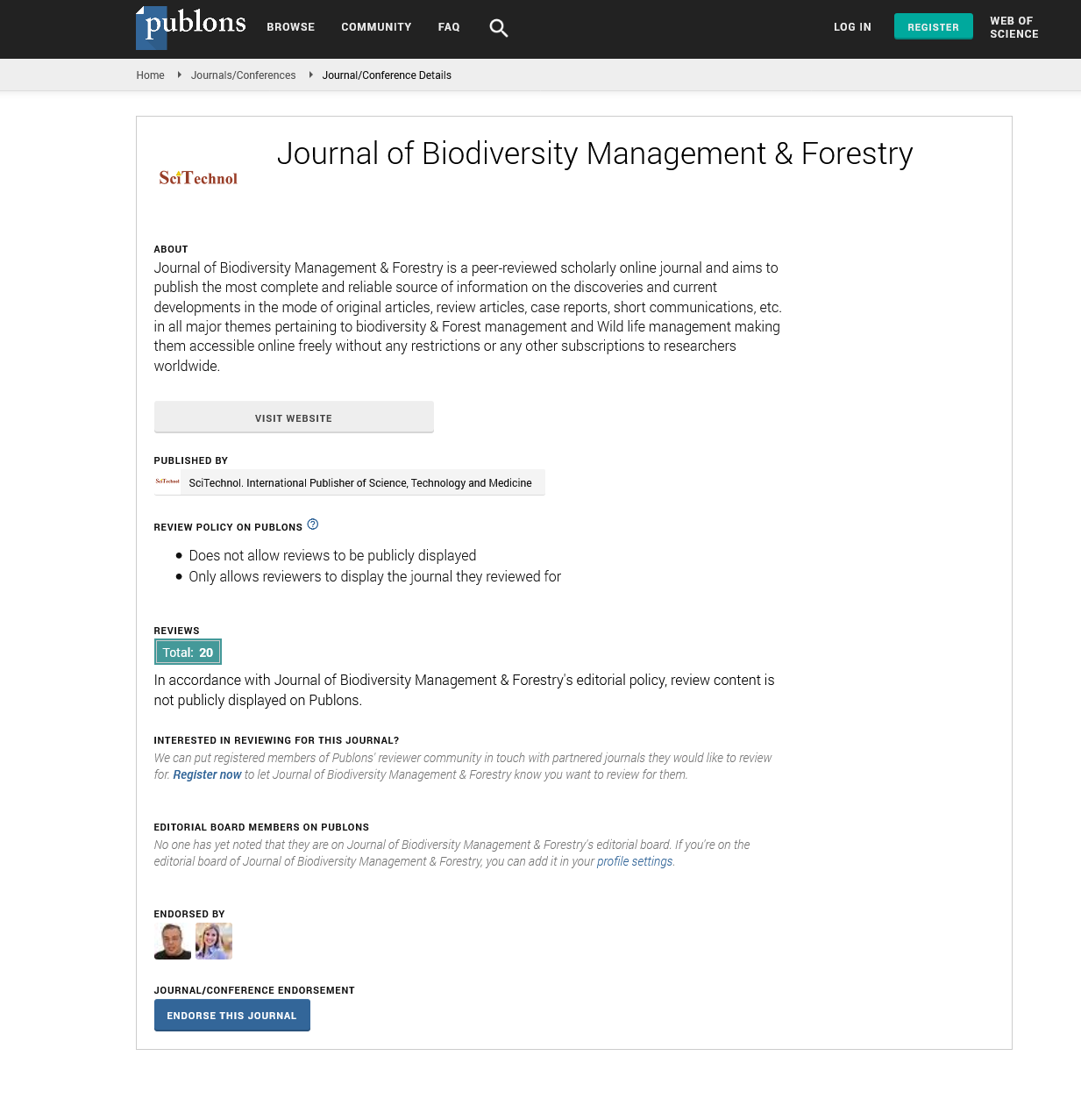Review Article, J Biodivers Manage Forestry Vol: 10 Issue: 3
Importance, Determinants and Gender Dimensions of Forests for Communities in Essera District, Dawuro Zone, Ethiopia
Abstract
Rural households across developing countries rely on diversified sources of income and forest resource play important role in this regard. This study is designed with the objectives of assessing the contribution of forests to annual income of rural households and identifying its determinants in the case of Essera district in western Ethiopia. The study also examined the gender dimensions of forest income and how this income varies within the wealth status of households. Key informants interview focus group discussion and household based questionnaire survey were used to collect data. Average income from crop production accounted 40.7% of the total annual household income. Forest income was second in importance contributing 32.6%, income from livestock off and non-farm activities and woodlots accounted for 13.6%, 11.4% and 1.7% of the total household income respectively. Firewood was the most used forest product and constituted the largest proportion 79% of the total forest income. Forest income was more important for poor households 47.3% than for medium 30.5% or rich 20.2% households. It is also more important for female headed households 58.2% than for male headed households 29%. The gender dimension of forest income was also important within the household. Female members generated about four times more forest income 77% of the household forest income) than male members 23%. Policy to promote new forest management arrangement such as participatory forest management (PFM) needs to take in to account the major forest users and the types of products they depend on and be accompanied with other poverty reduction measures so that improved forest conservation outcome will not have negative consequences on local livelihoods particularly on poor and women who depend most on the forest.

